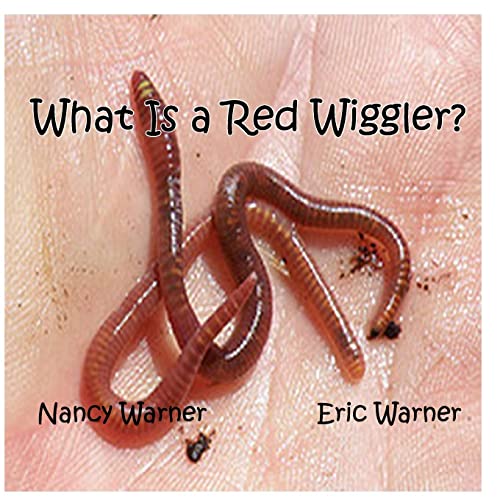Lake Hickory Bait Provides the Tools You Need for a Perfect Lawn
Lake Hickory Bait Provides the Tools You Need for a Perfect Lawn
Blog Article
How Red Wigglers Can Change Your Composting Experience
The integration of red wigglers right into composting methods supplies a transformative approach to lose administration and soil enrichment. Recognizing the certain needs and advantages linked with keeping a growing worm population is vital for optimizing their possibility.
Benefits of Red Wigglers
Red wigglers, clinically referred to as Eisenia fetida, are a cornerstone of effective composting systems because of their impressive ability to disintegrate raw material effectively. These worms stand out in changing kitchen area scraps, lawn waste, and various other natural materials into nutrient-rich garden compost, commonly described as worm castings. Lake Hickory Bait. This process not just lowers land fill waste yet also adds to sustainable horticulture methods
Among the main benefits of red wigglers is their high recreation price, allowing them to occupy a composting environment rapidly. This rapid reproduction improves disintegration rates, resulting in faster compost manufacturing. Additionally, red wigglers prosper in a varied range of conditions, making them versatile to various composting setups.

Establishing Your Worm Container
(Lake Hickory Bait)To produce a reliable worm bin for composting, careful focus needs to be given to its layout and setting. An excellent worm bin ought to be created of products that are sturdy yet enable essential airflow, such as plastic or timber. The size of the bin can vary, however a volume of roughly 1 square foot per extra pound of worms is a great starting factor.
Ensure that the bin has drain holes to stop water buildup, which can result in anaerobic conditions destructive to the worms. Additionally, incorporating ventilation holes will aid keep correct humidity degrees and oxygen circulation.
Next, it is important to provide bed linens for the worms, which can consist of shredded paper, cardboard, or coconut coir. This bed linen not only offers an environment for the worms yet additionally aids in dampness retention.
Placement the worm container in a location that keeps a temperature level array of 55-77 ° F(13-25 ° C) to maximize worm task. Avoid placing the bin in direct sunshine or extreme temperature levels. By complying with these standards, you can create a conducive atmosphere for red wigglers, boosting the efficiency of your composting process.
What to Feed Your Worms

(Hickory NC Worms For Sale)Red wigglers especially enjoy soft, damp foods like watermelon peels, cucumber peels, and banana peels. It is critical to avoid feeding them citrus fruits, onions, and garlic, as these can be detrimental to their health. Additionally, cooked foods, dairy products, and meat ought to be purely stayed clear of, as they can result in smells and bring in parasites.
Giving a consistent feeding routine will certainly help maintain your worm populace thriving while improving the general efficiency of your composting initiatives. By understanding what to feed your worms, you lay the groundwork for a successful and lasting composting experience.
Preserving a Healthy And Balanced Habitat
Creating a prospering composting atmosphere for red wigglers calls for focus to their environment, as it straight influences their health and wellness and performance. The suitable habitat should preserve a balanced moisture level, generally in between 60-70%. Extreme wetness can bring about anaerobic problems, while not enough wetness might dry out the worms.

The bed linens material in the compost need to be varied and shredded, including materials like cardboard, newspaper, and coconut coir. This not just supplies a comfortable atmosphere yet additionally functions as a food resource. Lake Hickory Bait. Regularly inspecting for odors or signs of parasites can aid identify prospective problems prior to they escalate
Finally, keeping a balanced pH degree, preferably between 6 and 7, makes certain a favorable environment for red wigglers, cultivating their capacity to procedure organic issue successfully. By dealing with these aspects, you can create a lasting and efficient composting community.
Harvesting and Utilizing Garden Compost
Collecting compost from a worm container is a satisfying process that changes natural waste right into nutrient-rich product for yards and plants. As soon as the composting cycle is complete, generally after 8-12 weeks, it's time to accumulate the vermicompost. The initial step entails separating the red wigglers from the completed garden compost. This can be done making use of techniques such as the "light" technique, where worms are brought in to light and can be scooped away from the leading layers, or by moving the garden compost to one side of the container and including fresh bed linen to the opposite side, motivating the worms to move.
When the worms are eliminated, the remaining compost can be sifted to eliminate any kind of larger bits or undecomposed material. The final product must have a dark, crunchy structure and a pleasant natural odor, indicating that it awaits usage. This rich garden compost can be applied straight to garden beds, mixed into potting dirt, or made use of as a leading clothing for potted plants. By integrating vermicompost into your gardening techniques, you not only boost dirt fertility however also advertise healthy plant growth and sustainable horticulture techniques.
Verdict
Integrating red wigglers into composting practices considerably enhances the decomposition procedure and adds to the manufacturing of nutrient-rich vermicompost. The resulting worm castings enhance dirt structure, fertility, and microbial task, ultimately promoting healthier plant growth.
Report this page